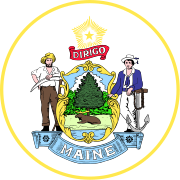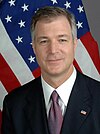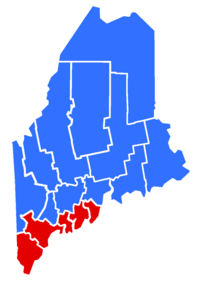
Piscataquis County is a county located in the U.S. state of Maine. As of the 2010 census, its population was 17,535, making it Maine's least-populous county. Its county seat is Dover-Foxcroft. The county was incorporated on 23 March 1838, taken from the western part of Penobscot County and the eastern part of Somerset County, and is named for an Abenaki word meaning "branch of the river" or "at the river branch."

The Maine gubernatorial election of 2006 took place on November 7, 2006. Incumbent Democrat John Baldacci was re-elected to his second term. This was the last time a Democrat won statewide office in Maine until 2018, when Janet Mills won the gubernatorial election over Republican Shawn Moody.

The 2006 Oregon gubernatorial election took place on November 7, 2006. Incumbent Democratic Governor of Oregon Ted Kulongoski ran for a second and final term as governor. Kulongoski faced several challengers in his primary, whom he dispatched to win his party's nomination a second time, while Republican nominee Ron Saxton, the former Chair of the Portland Public Schools Board and a candidate for governor in 2002 emerged from a crowded primary. Kulongoski and Saxton were initially going to be challenged in the general election by State Senator Ben Westlund, but Westlund withdrew his candidacy before the general election. There were, however, a number of strong independent challengers, the most notable of whom was Mary Starrett, the Constitution Party nominee. In a hard-fought campaign, Kulongoski won re-election by a surprisingly wide margin, winning his second term as governor.

David Farnham Emery is an American politician from Maine. A former Republican U.S. Representative, Emery grew up in Rockland before attending college at Worcester Polytechnic Institute, where he received a BS in electronics engineering in 1970. Upon graduating, he entered politics. He served in the Maine House of Representatives 1970-1974 and was active in the Republican Party.

John G. Richardson is an American politician and consultant from Maine. A Democrat, he formerly served as Maine's Commissioner of Economic and Community Development and the Speaker of the Maine House of Representatives. Richardson unsuccessfully sought the Democratic nomination for Governor of Maine in 2010. In February 2018, the Portland Press Herald reported that Richardson was involved in a potential conflict of interest case regarding the University of Maine and a $100 million redevelopment plan for the nearby Old Town mill. On February 9, 2018 the Portland Press Herald reported that there weren't any conflict of interest issues involving UMaine or Richardson.

United States gubernatorial elections were held on November 5, 2002 in 36 states and two territories. The Republicans won eight seats previously held by the Democrats, as well as the seat previously held by Minnesota governor Jesse Ventura, who was elected on the Reform Party ticket but had since renounced his party affiliation. The Democrats won 10 seats previously held by the Republicans, as well as the seat previously held by Maine governor Angus King, an independent. Overall, the Republicans suffered a net loss of one seat while the Democrats made a net gain of three. The Republicans managed to maintain their majority of state governorships, but it was reduced to a margin of only two seats. The elections were notable for the sheer number of state governorships that changed parties – 20 in total, constituting more than half of the seats up for election. Additionally, a number of Democratic and Republican gains occurred in states that typically favor the other party; for instance, Republican candidates won the usually Democratic states of Maryland, Hawaii, Minnesota and Vermont, while Democratic governors were elected in Republican-leaning states like Wyoming, Tennessee, Oklahoma and Kansas.

The 1998 Idaho gubernatorial election was held on November 3, 1998 to elect the Governor of Idaho. Phil Batt, the Republican incumbent, chose not to run for a second term. The Republican nominee, United States Senator Dirk Kempthorne, handily defeated the Democratic nominee, former Idaho Supreme Court justice Robert C. Huntley, to keep the seat in GOP hands.

The 2010 Maine gubernatorial election took place on November 2, 2010. Incumbent Democratic Governor John Baldacci was term-limited and unable to seek re-election. Primary elections took place on June 8, 2010. The candidates who appeared on the November ballot were : Eliot Cutler (Independent), Paul LePage (Republican), Libby Mitchell (Democrat), Shawn Moody (Independent), and Kevin Scott (Independent).

The 1994 Maine gubernatorial election took place on November 8, 1994. Independent candidate Angus King defeated Democratic Party candidate Joseph Brennan, a former Governor of Maine, Republican Party challenger Susan Collins, a regional coordinator of the Small Business Administration, and environmentalist Jonathan Carter. Ed Finks, as a write-in candidate, took in 1.29% of the vote. Incidentally, both King and Collins now serve together in the United States Senate.

The 1998 Maine gubernatorial election took place on November 3, 1998. Independent Governor Angus King sought a second and final term as governor. King faced off against former United States Congressman James B. Longley, Jr., the Republican nominee; attorney Thomas J. Connolly, the Democratic nominee; and several other independent candidates, including Green candidate Pat LaMarche, who would later serve as the Green Party's Vice Presidential nominee in the 2004 presidential election.
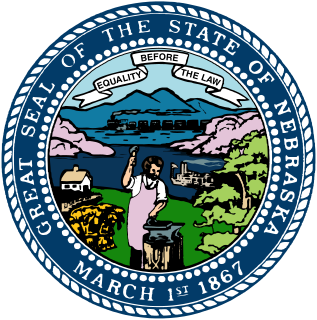
The 2000 United States election in Nebraska was held on November 7, 2000. Incumbent Democratic U.S. Senator Bob Kerrey retired after two terms in office, and Democrat Ben Nelson, a former two-term governor, won the open seat.

The 2009 Iowa state special elections were held throughout 2009. These elections were to fill vacancies in various state and local positions, most notably in the Iowa House of Representatives. In 2009, neither special election had the potential to change partisan control of the Iowa House, though such races may nonetheless be viewed as predictors for future elections. As of November 4, 2009, there have been two resignations from the Iowa House in 2009, resulting in special elections in House Districts 33 and 90.
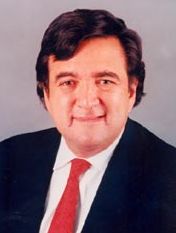
The New Mexico gubernatorial election of 2002 was a race for the Governor of New Mexico. The winner of the election held on November 5, 2002, served from January 1, 2003 until January 1, 2007. Current incumbent, Republican Gary Johnson was term limited. Former U.S. Congressman Bill Richardson won the election. Green Party nominee David Bacon received over 5% of the total vote, including over 11% in Santa Fe County, which was his best showing.

The 1996 United States Senate election in Maine was held November 5, 1996. Incumbent Republican United States Senator William Cohen decided to retire instead of seeking a fourth term. To replace him, United States Congressman and former Governor of Maine Joseph E. Brennan won the Democratic primary while political consultant and 1994 nominee for Governor of Maine Susan Collins won the Republican primary. A competitive general election ensued, but Collins ultimately won out over Brennan, keeping the seat in the Republican column. With Collins' election to the Senate in 1996, Maine became only the second state after California to have two sitting women senators.

The 2012 United States Senate election in Maine was held on November 6, 2012, alongside a presidential election, other elections to the United States Senate in other states, as well as elections to the United States House of Representatives and various state and local elections. Despite initially declaring her candidacy and being poised to easily win, popular incumbent Republican U.S. Senator Olympia Snowe unexpectedly decided to retire instead of running for reelection to a fourth term.
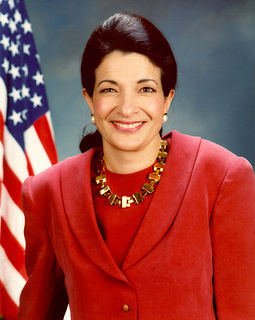
The 1994 United States Senate election in Maine was held November 7, 1994. Incumbent Democratic U.S. Senator and Senate Majority Leader George J. Mitchell decided to retire, instead of seeking a third term. United States Congressman Tom Andrews won the Democratic primary unopposed, while United States Congresswoman Olympia Snowe won the Republican primary unopposed. In the general election, Snowe defeated Andrews in a rout to win her first of three terms in the United States Senate, a stark contrast to retiring Senator Mitchell's landslide win six years prior.

When incumbent Democratic Governor Jeanne Shaheen opted to run for the United States Senate rather than seek a fourth term as governor, self-funding businessman Craig Benson, the Republican nominee defeated Mark Fernald, a New Hampshire State Senator and the Democratic nominee, in the general election after each of them won contested primary elections.

The 2014 United States House of Representatives elections in Maine was held on Tuesday, November 4, 2014 to elect the two U.S. Representatives from the state of Maine, one from each of the state's two congressional districts. The elections will coincide with the elections of other federal and state offices, including Governor of Maine and United States Senate. The primary elections were held on June 10, 2014.

The 2016 United States House of Representatives elections in Maine were held on November 8, 2016, to elect the two U.S. Representatives from the state of Maine, one from each of the state's two congressional districts. The elections coincided with the 2016 U.S. presidential election, as well as other elections to the House of Representatives, elections to the United States Senate and various state and local elections. The primaries were held on June 14.
